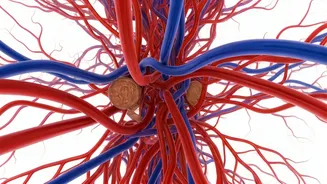Embrace Healthy Diet
The first step towards better circulation lies in your diet. Experts strongly recommend incorporating foods known to enhance blood flow. Consider adding
ingredients like garlic, which contains allicin, a compound known for its ability to relax blood vessels and increase blood flow. Furthermore, embrace foods rich in nitrates, such as leafy greens and beets; these convert into nitric oxide, another powerful vasodilator. Flavonoid-rich foods, including berries, also deserve a place in your diet, as they bolster vascular health. Remember to make informed choices with each meal to support your vascular system. Consuming a balanced diet aids not only circulation but also overall health, making it a foundational element for a healthy body. This dietary emphasis paves the way for efficient blood flow, fostering vitality.
Stay Hydrated Daily
Dehydration can thicken your blood, which in turn impedes its flow. Consequently, maintaining adequate hydration becomes crucial for effective circulation. Ensure you drink sufficient water throughout the day. The exact amount varies, but aim for at least eight glasses of water daily; the ideal amount depends on factors like your activity level and the climate you live in. Keep in mind that other beverages like herbal teas can also contribute to your daily fluid intake. Consistently drinking water improves blood viscosity, allowing the cardiovascular system to function efficiently. Always have water handy to sip on regularly. This small but vital habit supports optimal blood flow, contributing to overall health.
Regular Physical Activity
Regular exercise is a cornerstone for supporting healthy circulation. Aim for at least 30 minutes of moderate-intensity exercise most days of the week. Physical activity boosts blood flow, strengthens your cardiovascular system and enhances oxygen transport throughout the body. Activities such as brisk walking, jogging, cycling, and swimming are highly beneficial. Exercise aids in the dilation of blood vessels, which improves blood circulation. Incorporating exercise into your routine offers not only improved circulation but also contributes to maintaining a healthy weight. Regular exercise is linked to a decreased risk of numerous chronic ailments, and it is crucial for a healthy lifestyle. Engaging in exercises frequently supports the circulatory system, promoting vitality.
Manage Stress Effectively
Chronic stress can constrict blood vessels, negatively impacting circulation. It is important to find healthy ways to manage your stress levels. Consider implementing relaxation techniques, such as meditation or deep breathing exercises, into your daily routine. Yoga and tai chi are also effective in reducing stress. Getting sufficient sleep is essential for stress management; aim for 7–8 hours of quality sleep each night. Consider practicing mindfulness or engaging in hobbies that you enjoy to unwind and de-stress. Controlling stress levels leads to a decrease in the constriction of blood vessels, enhancing blood flow. Implementing effective stress management techniques can greatly improve circulation. This step not only benefits circulation but also improves overall well-being.
Quit Smoking Immediately
Smoking is one of the most detrimental habits for your vascular health. It damages blood vessels, constricts them, and dramatically increases the risk of cardiovascular diseases. If you smoke, quitting is one of the single most impactful things you can do to improve circulation. Quitting smoking can be challenging, but numerous resources and support systems are available to help you succeed. This includes nicotine replacement therapy, counseling, and support groups. Within a short time of quitting smoking, you’ll notice an improvement in your blood flow. The benefits of quitting smoking are immediate and far-reaching, improving not only circulation but overall health. Quitting smoking enhances the circulatory system, increasing the chances for a healthy and long life.












